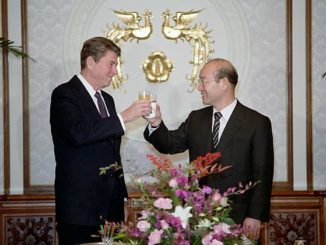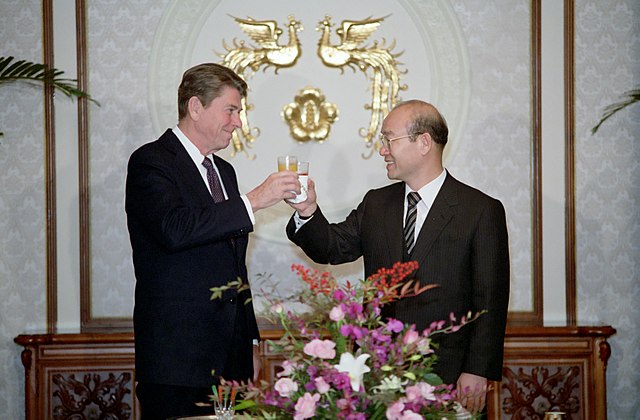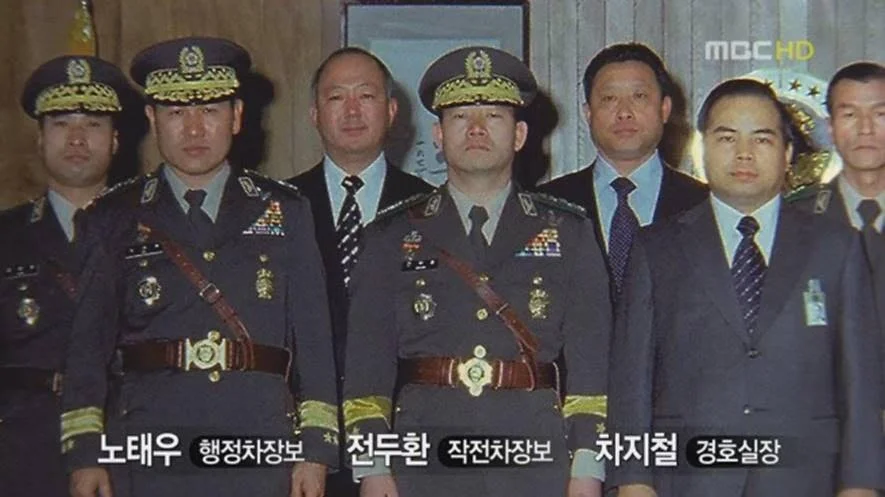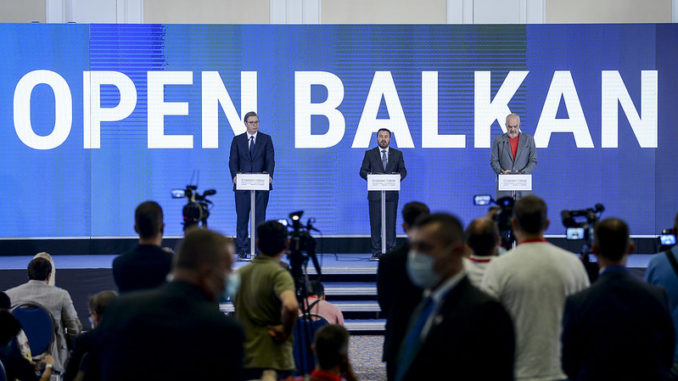
The European Union’s process to add new member states has stalled over the last decade. Quite aware that their nations will not join the EU anytime soon, if at all, leaders of three Balkan nations—Serbia, North Macedonia and Albania—have started their own economic integration process.

On July 29, in the North Macedonian capital of Skopje, Serbian President Aleksandar Vucic and prime ministers of North Macedonia and Albania, Zoran Zaev and Edi Rama, respectively, agreed to abolish border controls between the three countries starting January 1, 2023. The Balkan leaders also signed agreements facilitating trade and movement, cooperation in dealing with disasters, and freeing the labor market by removing work permit requirements and simplifying procedures. The initiative has been dubbed “Open Balkans.” Initially, it was named “Mini Schengen,” in an ode to the Schengen Area, the EU’s passport-free and duty-free zone made up of 26 European countries. During the Skopje summit, the initiative was re-branded “Open Balkans.”
Such moves were welcomed by the EU and the United States, two major powers operating in the Balkans. In fact, it is believed Richard Grenell, then-U.S. President Donald Trump’s special envoy to the Balkans, initiated economic integration between Serbia, North Macedonia and Albania in October 2019.
It may have been a coincidence that a day after the Skopje summit, Grenell was spotted with Serbian Finance Minister Sinisa Mali in a local night club in the Serbian capital of Belgrade. Just a couple of days later, he went to Albania, where he met with Rama.
Although the former U.S. diplomat is not part of the new U.S. administration, he appears to wield influence in the Balkans. The role he plays on behalf of the United States is unclear. During a recent visit to Albania, he reportedly said the self-proclaimed Republic of Kosovo—which is the subject of a long-running political and territorial dispute between the Serbian government and Kosovo leaders based in the city of Pristina—made a mistake by not joining the Open Balkans initiative. Besides Kosovo, Montenegro, as well as Bosnia and Herzegovina, also remain skeptical about this project. The EU, on the other hand, supports the German-backed Common Regional Market, which includes Serbia, North Macedonia, Albania, Bosnia and Herzegovina, Montenegro, and Kosovo. In other words, it seems certain U.S. players, namely Grenell and the Atlantic Council, support the Open Balkans project, while Germany pushes for Balkan nations to more deeply integrate into the Common Regional Market.
The @AtlanticCouncil team was honored to meet with President Vučić, Prime Minister @ediramaal and Prime Minister @Zoran_Zaev , today in Skopje, for the launch of #OpenBalkan pic.twitter.com/Dh4TKQPBm8
— Benjamin Haddad (@benjaminhaddad) July 29, 2021
Integrating the Balkans
It is worth noting, however, that EU member Austria, which has significant economic influence in the region, supported the creation of Open Balkans, which some see as a Serbia-centric, Yugoslavia-style initiative, especially if Montenegro as well as Bosnia and Herzegovina—where ethnic Serbs comprise around 30 percent of the population—become part of Open Balkans. Many Serbs, on the other hand, fear Open Balkans could turn into a “Greater Albania” if Kosovo—where ethnic Albanians make up over 90 percent of the population—joins the initiative. In reality, this entity could unite all the Serbs and Albanians living in the Balkans.
“This initiative is changing everything in the region,” said Serbian President Aleksandar Vucic. “We will have to work a lot and I believe that we will succeed.”
The initiative might already be changing the region. For instance, Serbian and North Macedonian national postal services have reportedly agreed to initiate the establishment of a common postage stamp and a single price for parcel services, in order to provide citizens of Open Balkan countries with services at a single tariff. This move has been viewed as an initial step in practically implementing Open Balkans.
On the other hand, prime ministers of Montenegro and Albania, Zdravko Krivokapic and Edi Rama, have recently opened a joint border crossing between the two Balkan countries. Montenegro now has three common border crossings, two with Albania and one with Bosnia and Herzegovina. Moreover, on July 1 the region became a “roaming-free zone,” which means no roaming charges for people using their mobile phones while travelling between or in Serbia, Albania, North Macedonia, as well as Bosnia and Herzegovina, Montenegro, and Kosovo. The European Union supported this initiative, which suggests that both Brussels and Washington aim to include the Balkan nations that are still out of the EU into a joint regional entity, be it Open Balkans or Common Regional Market.
Neocolonialism in the Balkans?
No part of either project, however, is Balkan-made. Rather, these efforts are intended to advance foreign powers’ wider geopolitical strategies.
In the past—particularly in the 19th and in the first half of the 20th century—the people of the Balkans were clear the Balkans should belong to them. When they were freed from the centuries-old feudal system the Ottoman Empire and the Austro-Hungarian monarchy had imposed, the newly formed nations took the first political steps in an effort to emancipate themselves and cease to be colonies in Europe. To this day, however, the Balkan nations remain heavily dependent on Western powers, and some claim the EU treats the region in a neocolonial manner. Neocolonialism involves an outside power ruling a country by indirect means.
The United States has applied a similar pattern with Balkan countries, regardless of which political party’s representative sits in the White House. Nowhere was that more obvious than in the White House in September 2020, when leaders of Serbia and Kosovo signed a “historic” economic agreement, although the document they signed looked more like a list of U.S. demands that was addressed to its Balkan client states. The major points in the document involved normalizing relations with Israel.
But some speculated the Serbian president didn’t know what he had signed, based on video footage that went viral on social media. In that video, when Trump mentioned the Embassy of Serbia located in Tel Aviv would move to Jerusalem, Vucic began to turn the pages of the document, looked to his right and brought his hand to his head.
Footage that certainly makes it appear that Vucic did not realize he had agreed to moving the Serbian embassy to Jerusalem — or at least not by July, Trump states. Comedy of errors. pic.twitter.com/nhBjfja0lc
— Paul 🏴☠️ the other one… (@paulcshipley) September 6, 2020
Moreover, a photograph of Vucic sitting in the Oval Office also went viral because some said Vucic looked like a schoolboy who had been summoned by Trump, further cementing the popular notion that Serbia is under the U.S. thumb.
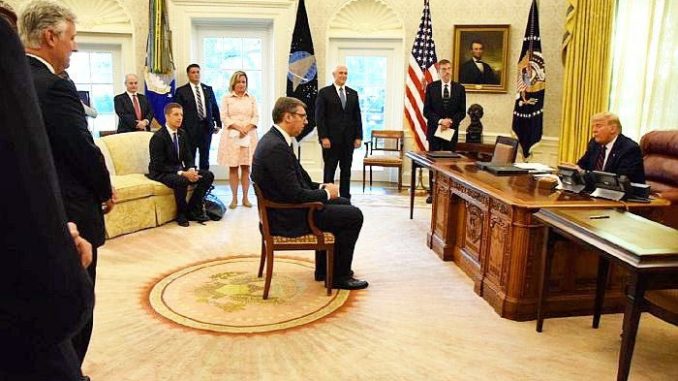
Meanwhile, the Biden administration’s relationship to the Balkans has been similar to the Trump administration’s. That is, until Biden indicates otherwise.
“We still don’t know what the Biden administration’s attitude is towards the Balkans,” said John Bolton, a national security advisor in the Trump administration. “Biden’s campaign has avoided answering many foreign and domestic questions, and I think the Biden administration is focusing on domestic issues at the moment, not foreign policy, so I don’t know when we will get an answer to that question.”
For now, self-determination for the region is unlikely with an initiative like Open Balkans. The region appears to remain stuck in the waiting room to join the EU, while foreign powers fight for influence and redistribution of Balkan nations’ wealth.
Nikola Mikovic is a Serbia-based contributor to CGTN, Global Comment, Byline Times, Informed Comment, and World Geostrategic Insights, among other publications. He is a geopolitical analyst for KJ Reports and Global Wonks.


